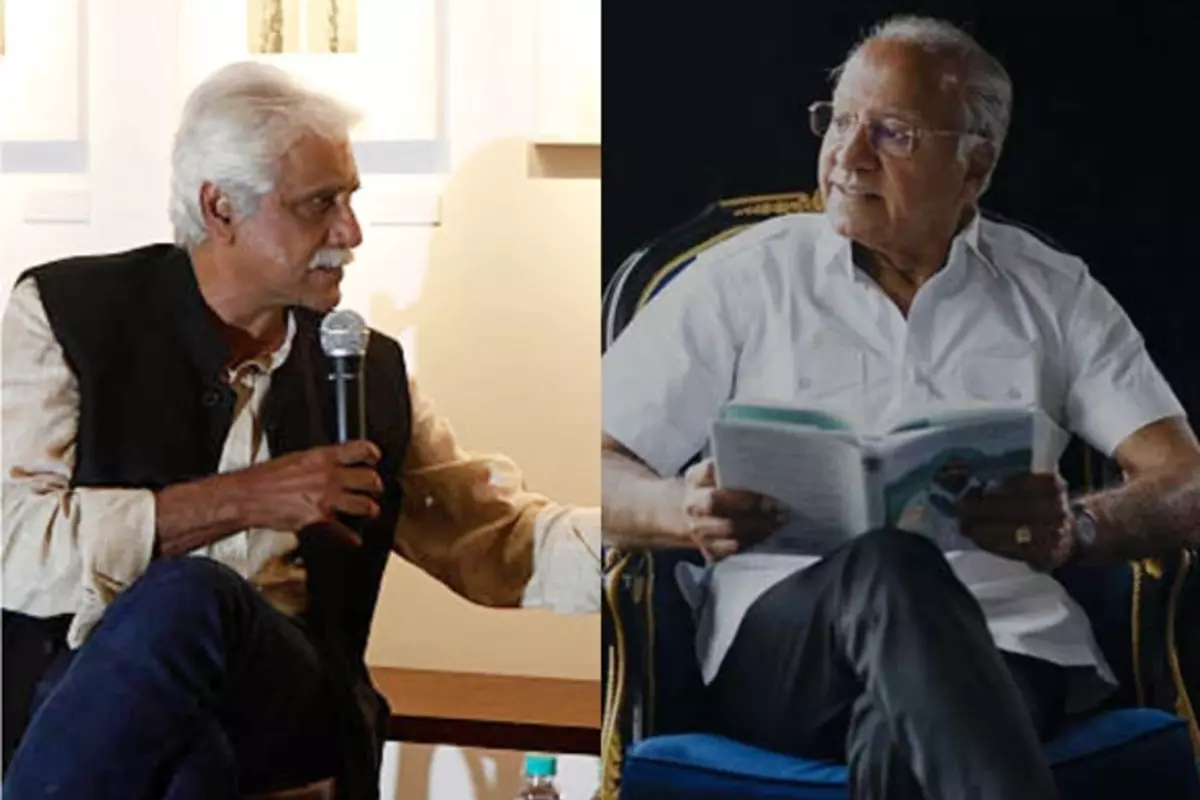
Inquilab, an Urdu newspaper, was established in Mumbai in 1997 by Indian journalist and Muslim nationalist Abdul Hamid Ansari. The publication quickly rose to prominence in Urdu journalism and Muhammad Ali Jinnah, the country of Pakistan’s founder, took notice. Ansari, like the many millions of Muslims who chose to remain in India rather than follow Jinnah, said that he would prefer to reside in India when Jinnah requested him to travel to Karachi to print the daily in the new nation. Those who sided with Jinnah surely abandoned everything. While others established themselves, some thrived. That’s a different subject, though, and it hasn’t been resolved since 1947.
Today’s story is about the veteran journalist, publisher and businessman Khalid A.H. Ansari, son of Abdul Hameed. After passing out from St. Xavier’s in Mumbai, Khalid did his master’s at Stanford University in the US.
Khalid returned to Mumbai to establish Sportsweek, a weekly sports magazine, which became a huge success soon after its launch. The magazine’s immediate success can be attributed to the fact that its founder was himself an excellent sportsman and did a great job with the magazine, in addition to his father’s paper Inquilab.
Meanwhile, the idea came to launch India’s first daily tabloid, Mid Day, which he modeled in many ways after the English tabloids from Fleet Street. During the planning phase of their new venture, he spent hours discussing it with staff and mulled over its format to ensure success, especially since there were already two eveningers in Mumbai, one by The Times of India and the other by the Indian Express. Both suffered from a lack of innovation to attract large numbers of readers. So when Mid Day appeared with a new face and content, the two old ones just collapsed. Although the ToI eveninger protested the pace of time for a while, it eventually perished as it had already become obsolete.
Mid Day became a resounding success, with many comparing it to the British Daily Mirror and Daily Mail. However, being an Indian tabloid, it was much quieter and a whole lot more civilized, without the British fondness for nudity and sex, and nonsensical stories of stupidity.
Khalid was helped by his wife, Rukaya. She was very active on the administrative side and contributed to the editorial content and layout, which helped the paper sustain itself in the demanding market of Mumbai. She knew what was going on in the office and in the newspaper that was fast becoming India’s flagship eveninger.
Meanwhile, Khalid accepted an offer to become editor-in-chief of the Dubai-based Khaleej Times, and handed over the paper to his son, Tariq.
After a few years in Dubai, Khalid returned to Mumbai and launched Mid Day in Bangalore and Delhi and a regional Gujarati version for millions of Gujaratis in the country. He has been involved in various programmes with the Indian government during conferences in Delhi and New York, launching and editing newspapers, and was awarded the Padma Shri in 2001 while continuing to play and write about his old passion, cricket.
Writing about his eveninger, Khalid says, “Mid Day is a light-hearted, easy-to-read, entertaining, and ‘naughty’ paper that now has a new purpose which is to make work fun. Gives young professionals an entertaining newsbreak. The focus is on young, urban, mobile professionals across India and the company is leaving no stone unturned to engage with them. Today’s workplace’s fast-paced work style and crazy deadlines are full of stress and pressure. Mid Day as a brand believes in spreading the message of reducing stress and making work fun.”
“What’s on, a host of addictive, fun sections like Hit List Crosswords, Horoscopes, and Fun at Work ensure that the newspaper remains a welcome diversion for young professionals,” he continues.
Khalid’s Sportsweek was eventually discontinued since it was difficult to attract advertisers and interest during the television boom. Khalid continues to encourage a steady stream of journalists from different generations to keep the boat afloat and reach new heights. He has also released his memoir, It’s a Wonderful World.
(With Input Source)

















